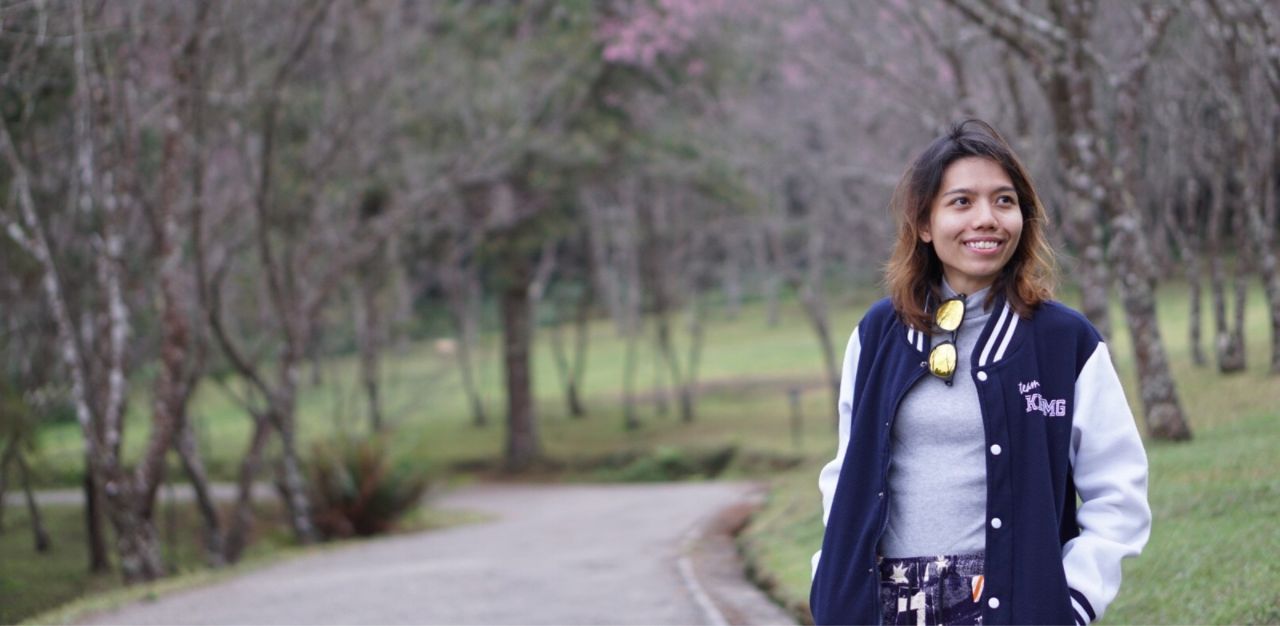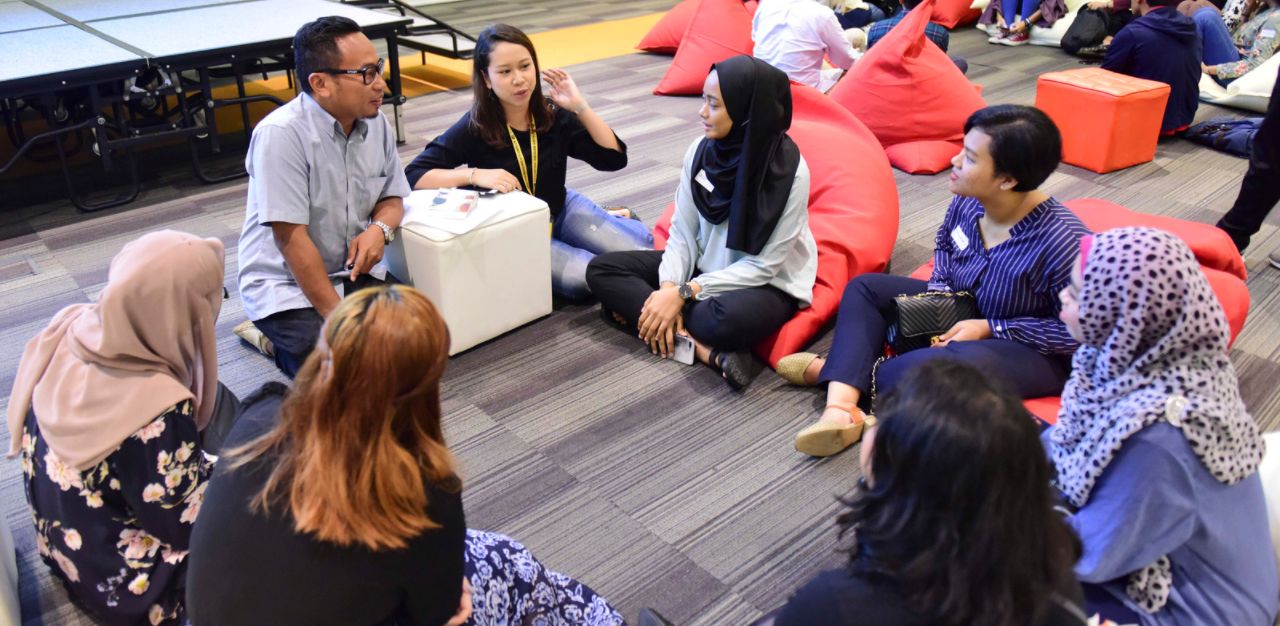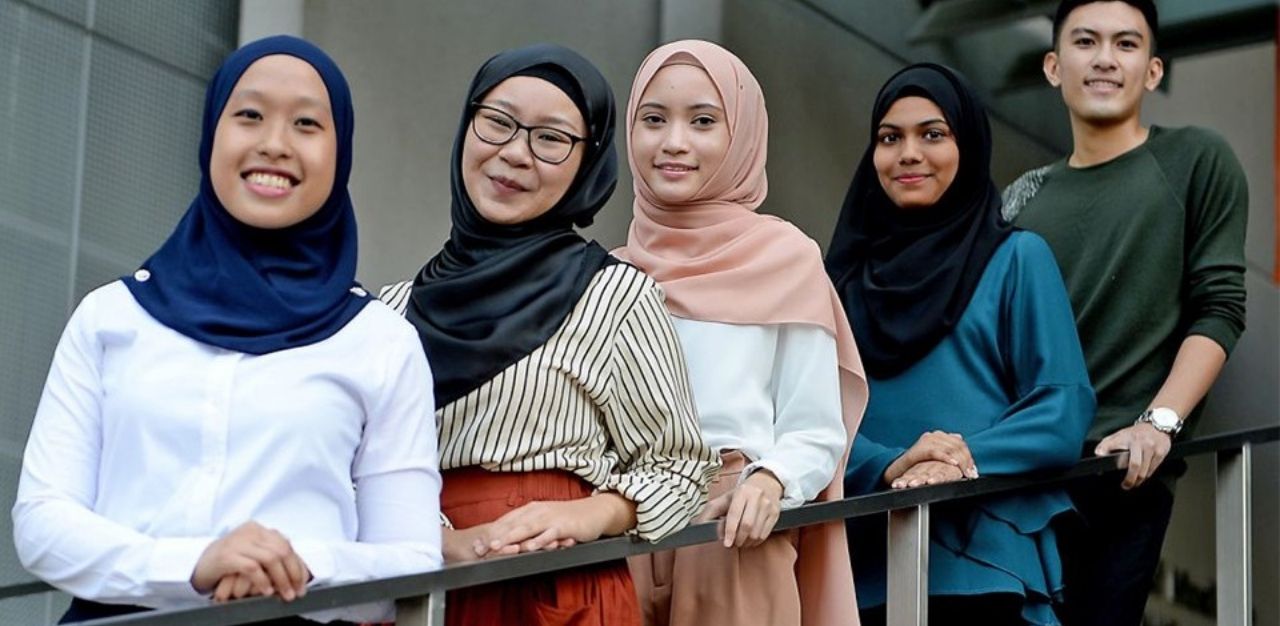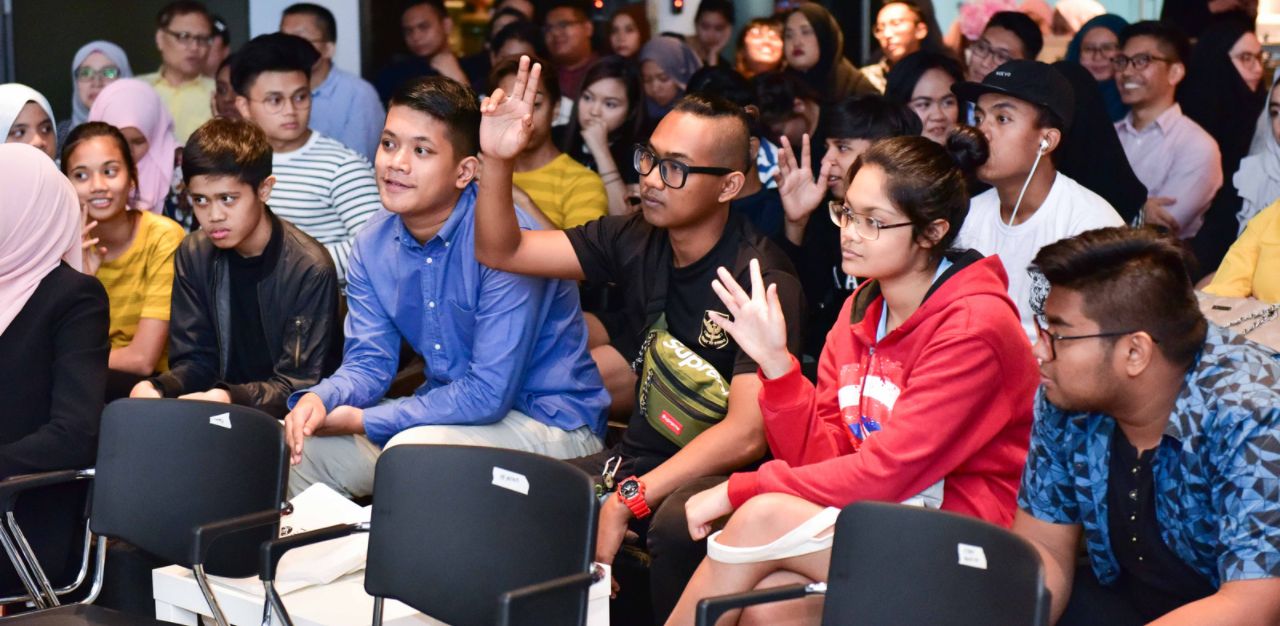Data scientist Asyikeen Azhar, 32, did not realise her dream until after she started work with one of the Big Four accounting firms in Singapore. It was after five years into the job that she became restless.
“I wanted to do a master’s degree and looking back to my undergraduate days, there was one module I enjoyed — management science. Unfortunately, it was not one of the courses of study for masters, so I picked the closest thing, data science and started to dabble,” she says.
It was then that Ms Asyikeen realised how it applies to everyday life — not just for organisations but also on an individual level.
“Besides computer science and mathematics, data science also covers other domains like psychology, sociology, linguistics and biology. It is very overreaching. I could find meaning, explore data, make decisions, and derive inspiration from all these different domains. For instance, in linguistics, there’s something called text analytics. If you build algorithms for text analytics, you can understand how humans communicate with each other and how languages work,” she says.

When Ms Asyikeen started volunteering with MENDAKI in 2018, she saw the possibility of using data science for voluntary welfare organisations (VWOs) and non-governmental organisations (NGOs).
“I’ve done projects in the past that utilise data from NGOs to help them make decisions. I wanted something along that line for MENDAKI. While working with the Young MENDAKI Club (YMC). I helped build the algorithm to match mentors and mentees for the mentorship program. It’s basically like a dating app where it finds the characteristics of mentors and mentees that will build greater chemistry between them,” she says.
Ms Asyikeen is one of the panellists at the third MENDAKI-Institute of Policy Studies (IPS) Policy Dialogue that will be held on 30 October (2021) and according to Team Lead and Senior Manager of Research & Design Department at Yayasan Mendaki Faisal Aman, she is picked because she is an inspiration to young girls and youths in the Malay/Muslim community.
“Last year (2020), during the height of the COVID-19 pandemic, there were a lot of youths and jobless people and we wondered what the current ground sentiments were. This year, the dialogue looks at how we can have positive conversations through intergenerational discourse between mature and young workers,” Mr Faisal says, adding that the conversations are “upstream, especially with youths from upper and post secondary and tertiary education”.
“These conversations are important because they shape the minds and the hearts of our Malay/Muslim youths … So we hope to inspire, and also change mindsets to be more open during these very uncertain times,” he adds.
Mr Faisal says a survey carried out by MENDAKI last year (2020), on 200 Malay/Muslim youths between the age of 18 and 35 found that they usually seek advice from their family and friends before approaching other sources such as the government information centres or even their school services.
The survey also found that 4 in 5 youths believe that they are resilient and would like to pursue education while employed by attending part time or short courses.
“So this third instalment of the MENDAKI-IPS dialogue looks at how we can have positive conversations… and these conversations are based on evidence from sources, so that the youths will know that there are available platforms, available courses and specific programs that are catered for them. For example, we have the Professional Conversion Program (PCP), that we have been pushing through for our Malay/Muslim community,” he says.
Mr Faisal, who is also the moderator at this year’s dialogue, says that the question of “what” had already been addressed during the dialogue held last year, titled “Developing A Resilient Community Through Lifelong Learning”.
“It is now the question of ‘how’, so that is where we are coming from with the title ‘Gearing The Workforce For The Future’,” he adds.
Having younger speakers to help break through set minds and ideas
This year’s panel is also made up of younger industry leaders to reach out to the young Malay/Muslims. Mr Faisal says psychologically, people tend to trust those they identify with and most often with youths and young Malay/Muslims, getting senior executives, community leaders and established academics to speak may not work with them. There is a need to speak, hear and think in their language.
“So a lot of our engagements this year have brought in those youths who are able to go to sectors which were often not very conventional for the Malay/Muslim community. If you were to look at our census, our data sets, most of our Malay/Muslim community are in the service, sector — public service, education and healthcare. We want to move and shift this into growth sectors like IT, finance and banking, which, I think, we are gaining a foothold in, but not as fast as others,” he says.

So this year’s dialogue panel comprises Dr Woo Jun Jie, a Senior Research Fellow in the Governance and Economy Department at IPS; Dr Gog Soon Joo, Chief Futurist, Chief Skills Officer, Chief Research Officer at SkillsFuture SG; and Data Scientist Asyikeen Azhar.
“And Mr Abdul Samad Abdul Wahab, Vice President of NTUC Central Committee and a Nominated MP. Mr Samad is also a senior specialist in tech and he represents the generation who were very hard working and have 20 years in the service. He not only represents mature workers, but also someone with the knowledge of the labour movement and skill upgrading,” Mr Faisal says.
“Dr Woo will speak on global understanding and gaps in policies in the different segments of the populace, especially those in the youth sector. Dr Gog is a chief futurist who will be able to give us some very pertinent examples of how currently SkillsFuture SG looks into translating programs to encourage and reach out to the young Malay/Muslims so they can move into the growth sectors. So I think that is a good balance,” he adds
Breaking both gender and race stereotypes
Mr Faisal says Ms Asyikeen is chosen as she would be “someone who is very inspirational to both the young girls as well as youths”.

“If you were to look at the Census 2020 findings, female Malays represent a high proportion of graduates and this is something that we want to push. We want to push these women, who already have the education and aspirations, further; not stop at just having that degree. We want to push them to further their careers. So to help capture their imagination, we want the story of Asyikeen’s trailblazing journey towards a PhD in her area of specialisation to be told in her own words,” he says.
But the path to where she is today was not an easy one for Ms Asyikeen as it was fraught with steep learning curves and stereotyping by clients, bosses and colleagues.
“When I was working for one of the Big Four, I did face stereotyping with some clients. It was quite apparent at that time. When it comes to data scientists, there are different kinds of stereotyping. The first is gender. In computer science and data science, people tend to think that men are better at it; just like how they think men make better drivers, but of course it’s not true, right? In computer science and data science, I still face the fact that I am a woman and they will look at me differently,” she says.
“When it comes to the question of race, since I work at a multinational company, it is Asians instead of a particular race. For me, I just show that I am competent and work to always improve myself. As I am more linguistically inclined, I do presentations and explain difficult concepts to people who are not trained in data science so they will be able to understand the technical aspects. So I leverage on my strengths, and at the same time, I also work on my weaknesses, my technical stuff, because I got into the field quite late in life compared to the rest of the data scientists,” Ms Asyikeen adds.
You can reach that goal but it might take longer and eventually you will get there
At MENDAKI, Ms Asyikeen volunteers on an ad hoc basis, speaking to Malay/Muslim youths whenever she can.
“I wanted to show them that it’s possible to dabble in uncharted waters. I didn’t start off in data science at a young age. In fact, I was quite late going into the game. It is more like following and understanding my joys in life. That was what led me to data science in the end. It was a struggle because I was competing with people who have been coding for the longest time. So, I really needed to put in more effort in finding ways to differentiate myself from the rest. I wanted to show [these Malay/Muslim youths] that if something has not been done before, it doesn’t mean that it’s impossible, it just means that you have to try harder and find your own way to get there,” she says.
Ms Asyikeen says she did not do well for both A Levels and her final year examinations at the university.
“So when I first got my job as an accountant for the big four firms, it was purely by chance. I guess what set me apart was during one of my classes where there was an invited speaker, I asked a question that both my professor and the speaker thought was quite insightful. I then took the chance to talk to both after, introducing myself and telling them what I was actually interested in. That was when my professor recommended me for the job. Without that, I would not have that opportunity,” she says, adding that “even though you may not be good at something, there are people who can recognise your strengths, but you need to show them first”.
“So, reaching out to people and introducing yourself is still a valuable thing to do. It really is hard but something good might come out of it in the end. … Always surround yourself with people who inspire you and from diverse backgrounds because the environment you’re in makes a difference. I’d rather be a small fish in a big pond than a big fish in a small pond,” she adds.
Mr Faisal agrees.
“Through the dialogue, we want to motivate not only the youths of our community but also policymakers, researchers, those in the public service or even the community. … It’s both a top-down and bottom-up approach. The government can do so much and we also do not want them to just come in from the top. We are trying to shift in terms of the movement from the ground — from the union’s perspective, from the youths’ perspective,” he says.
He adds that it is important to tell the youths in the Malay /Muslim community, especially those studying in the Institutes of Technical Education (ITEs) that they may not be in the course that they want or love, but it is not difficult to move upwards and outward later.
“We want to tell them that what is most important is that these qualifications are not the be all and end all. They are the basis of further learning. Dr Gog would share, for example, that ITE is more about having different programs. For instance, we have NITEC, an ITE Diploma. Then you move on to higher NITEC as well as to a polytechnic while you are still in the ITE. These ITE Work-Study Diplomas and Technical Diplomascan actually help you to get to the different local universities. So it’s a learning continuum. You just need to know what program to enrol yourself in. Nothing is stopping you and that’s something that we want to bring forth, to let people see the new journey, show people the back lessons, and guide them along,” Mr Faisal says.
In order not to be preaching to the choir, Mr Faisal says the first wave is this YM-IPS Policy Dialogue that will be looked at on different platforms, such as Instagram and Facebook, which “will succinctly encapsulate the key points”.

“This is not just a one-stop program. We will be continuing the engagements and the conversations and we will push it as much as we can. It takes time. And we are trying to expand our audience. For one, we will write to the madrasahs and those who are in national service. We’re already tracking and monitoring the paths they have picked in terms of their life journeys and try to intercept and give them some signposting along the way,” he says.
The Mendaki-IPS Policy Dialogue 2021 will be held on Saturday, 30 October between 2pm and 3.30pm. To register, please click here by 25 October 2021. For any queries, please email [email protected].
Join the conversations on TheHomeGround Asia’s Facebook and Instagram, and get the latest updates via Telegram.












